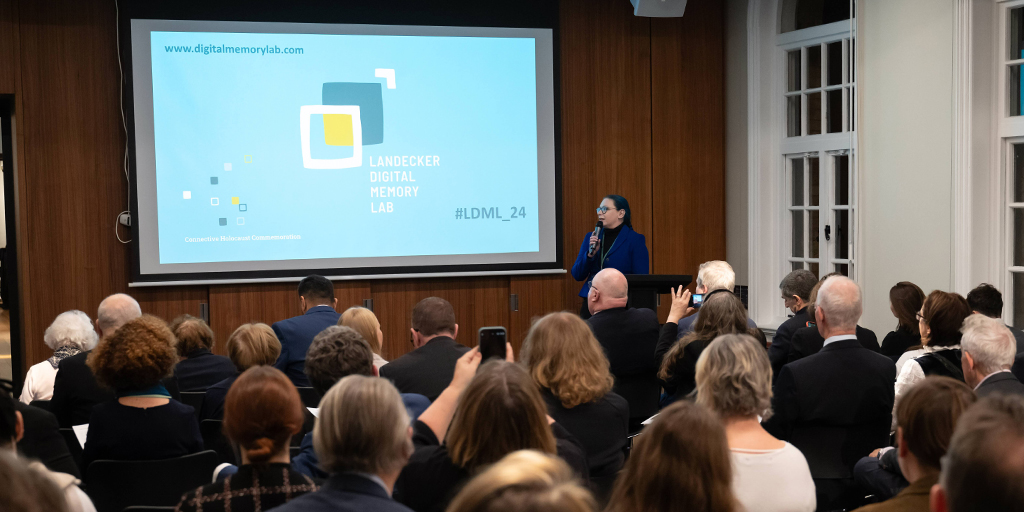
Building the Lab – Part 3: Our Official Launch
by Prof. Victoria Grace Richardson-Walden, Director, Landecker Digital Memory Lab
The Landecker Digital Memory has officially launched. To mark the pivotal moment, we held an event in London in front of a distinguished audience of academics, policymakers, Holocaust memorial sites and museums, educators, journalists, filmmakers, digital media creatives, politicians and Holocaust survivors and their descendants.
After months of hard work establishing our team, aims, values, and starting to build the initiatives we are launching in 2025 and beyond, the Landecker Digital Memory Lab officially launched this week at the Imperial War Museum in London.
We felt a real buzz in the room as attendees enjoyed a drinks reception, an exclusive review of our forthcoming policy guidance on AI and Holocaust memory, and had the opportunity to preview some of our walkthrough videos ahead of the launch next year of our living database-archive.
All of our guests were invited to an ‘after hours’ private viewing of the Imperial War Museum’s award-winning Holocaust Galleries, following a fascinating introduction by its curator and the Museum’s Head of Public History, Dr James Bulgin.
As I introduced our plans for the next five years, we were joined by an audience of more than 150 people in person and online. Participants tuned in for the live stream from the North and South Americas, Africa, Australia, across Europe and Israel.
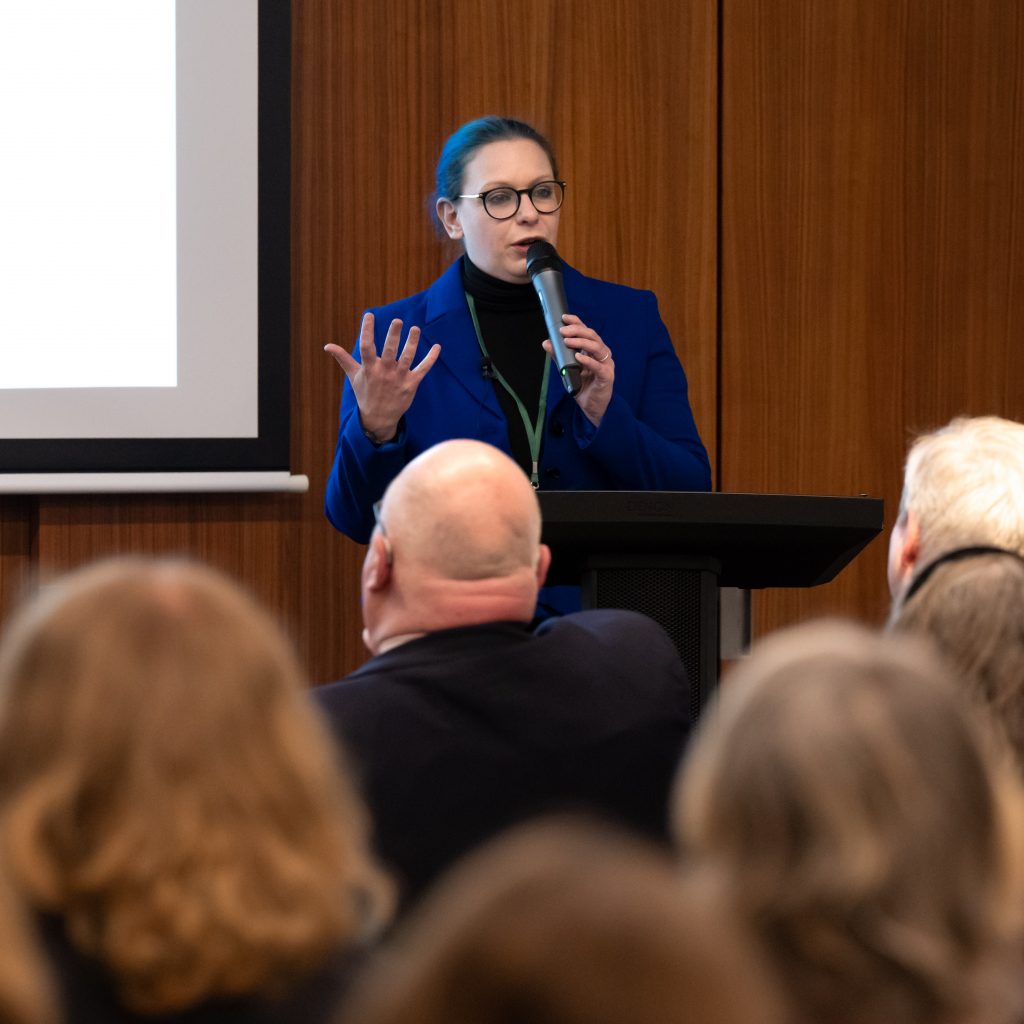
I started my presentation reflecting on the geo-political changes since I first proposed the project more than two years ago to Steffen Jost, Head of Programme and Lead, Digital History and Memory at the Alfred Landecker Foundation.
At that time, it seemed important to make a research-informed intervention in digital Holocaust memory and education practice because there was so little sector-wide strategic planning about how to use emerging technologies.
In my fieldwork at Holocaust memorial sites and museums across Europe in 2022, I had found many projects to be full of bugs, incomplete, broken, or inaccessible due to poor WiFi connections. In one office, I saw a pile of unusable iPads, whose software updates meant the memorial’s VR application was no longer accessible. This fieldwork took me across Norway, Germany, Poland, Serbia, the Netherlands and Austria, and was later followed by further research in the US and Australia (read more about the research methodology ).
Our mission statement is clear but ambitious: to ensure the sustainability of Holocaust memory in the digital age.
But I explained to the audience that since October 7th, a new urgency underpins our work. The professional Holocaust memory and education sector faces a double crisis.
The existential crisis is that many organisations are re-evaluating their purpose since that date. What is their remit? Should it include contemporary antisemitism? Some are wondering whether they did enough, whether they have failed. Also, they are questioning whether they are really targeting the right audiences.
The sustainability crisis refers to the lack of strategy across Holocaust commemorative and educational initiatives, when it comes to:
- Digitisation and digitalisation.
- Maintaining digital projects.
- Ensuring lessons learned inform future work.
The Lab intends to confront these crises. As I said at the event, our mission statement is clear but ambitious: to ensure the sustainability of Holocaust memory in the digital age.
You can read more about who we are and what we are working on, on our new website. We will continue to publish blogs which detail our work, along with the challenges it brings and, importantly, the rigorous research we are doing along the way.
Everything we do is informed by research.
It was really wonderful to see the launch supported by five special guests.
“The Landecker Digital Memory Lab is a call to action to each of us,” Lena Altman, Co-CEO, Alfred Landecker Foundation said.
Lena Altman, Co-CEO of our funder and key project partner, the Alfred Landecker Foundation gave the welcome address, describing the Lab as “a call to action to each of us.” She homed in on the importance of our interdisciplinary approach in confronting the challenges of the Holocaust in the digital age.
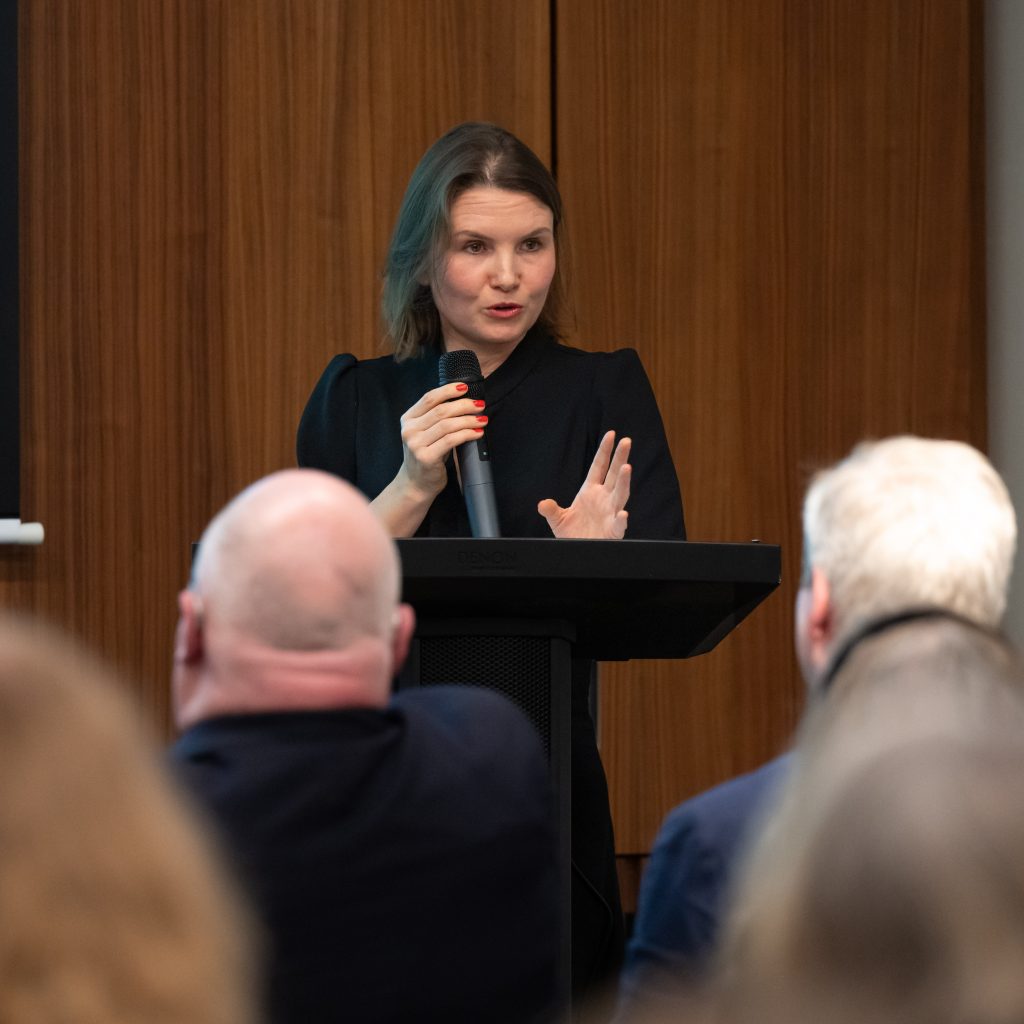
An interdisciplinary approach means we want to capture the voices of all those involved in creating digital Holocaust memory projects, from curators, educators, archivists and survivors through to coders, designers, developers and IT staff.
On the subject of ‘calls to action,’ here are some of the ways you can get involved with the Lab:
- Submit a proposal for our Expo in 2025
- Get in contact with us to archive your digital Holocaust memory projects and interview your team for our living database-archive
- Be one of the first to take advantage of our consultancy programme
Lord Pickles, UK Special Envoy for Post-Holocaust Issues and President of the International Holocaust Remembrance Alliance, addressed the bigger picture in which the Lab’s work sits. He told the audience: “It’s a perfect time to launch this significant initiative. We’re entering a world where we have to hold on closely to clarity, empathy and above all, our archives. Nobody should be frightened of the truth.”
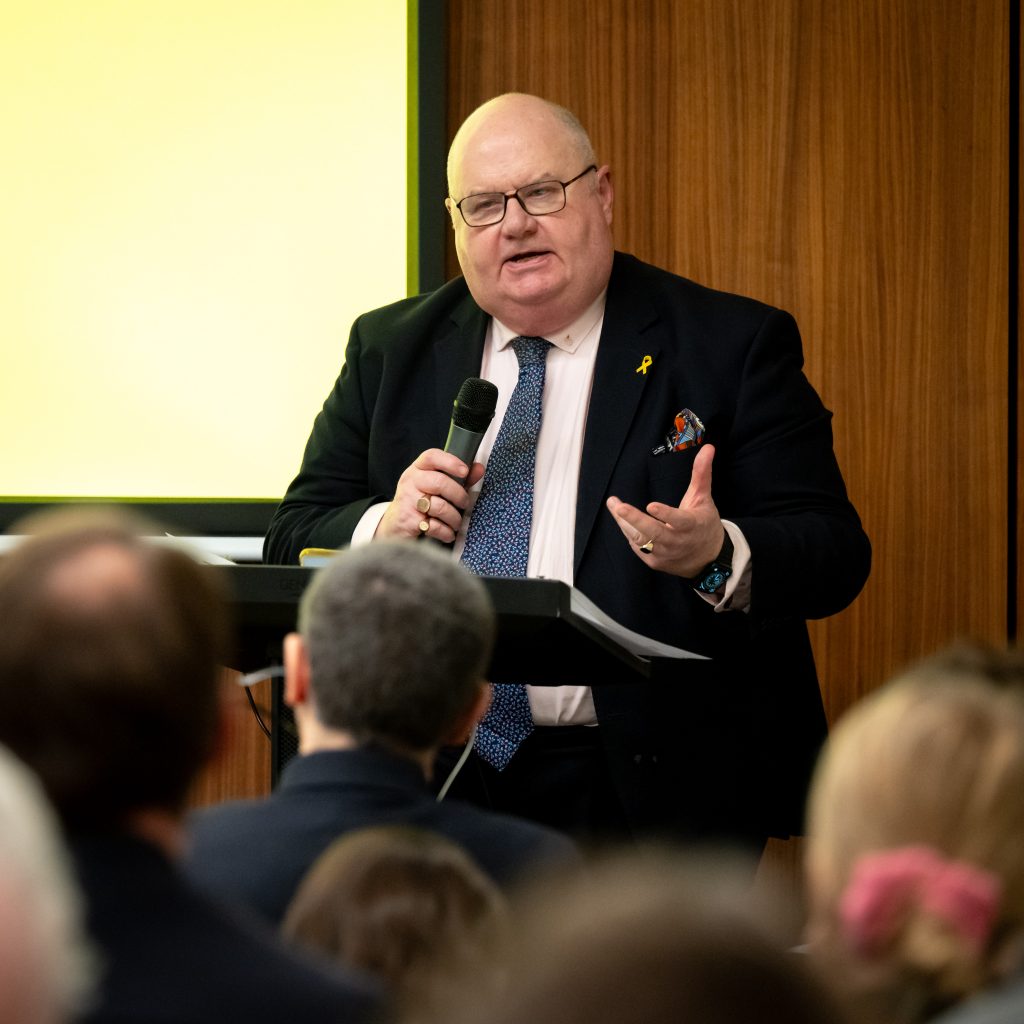
From our home of the University of Sussex, Professor Michael Luck, Deputy Vice-Chancellor and Provost, speaking on behalf of our Vice-Chancellor Sasha Roseneil (sadly too unwell to join us) focused on how the Lab’s work complements the University’s wider values: “The Landecker Digital Memory Lab will make a major contribution to the University of Sussex’s emerging strategies of digital and data futures and human flourishing,” he said.
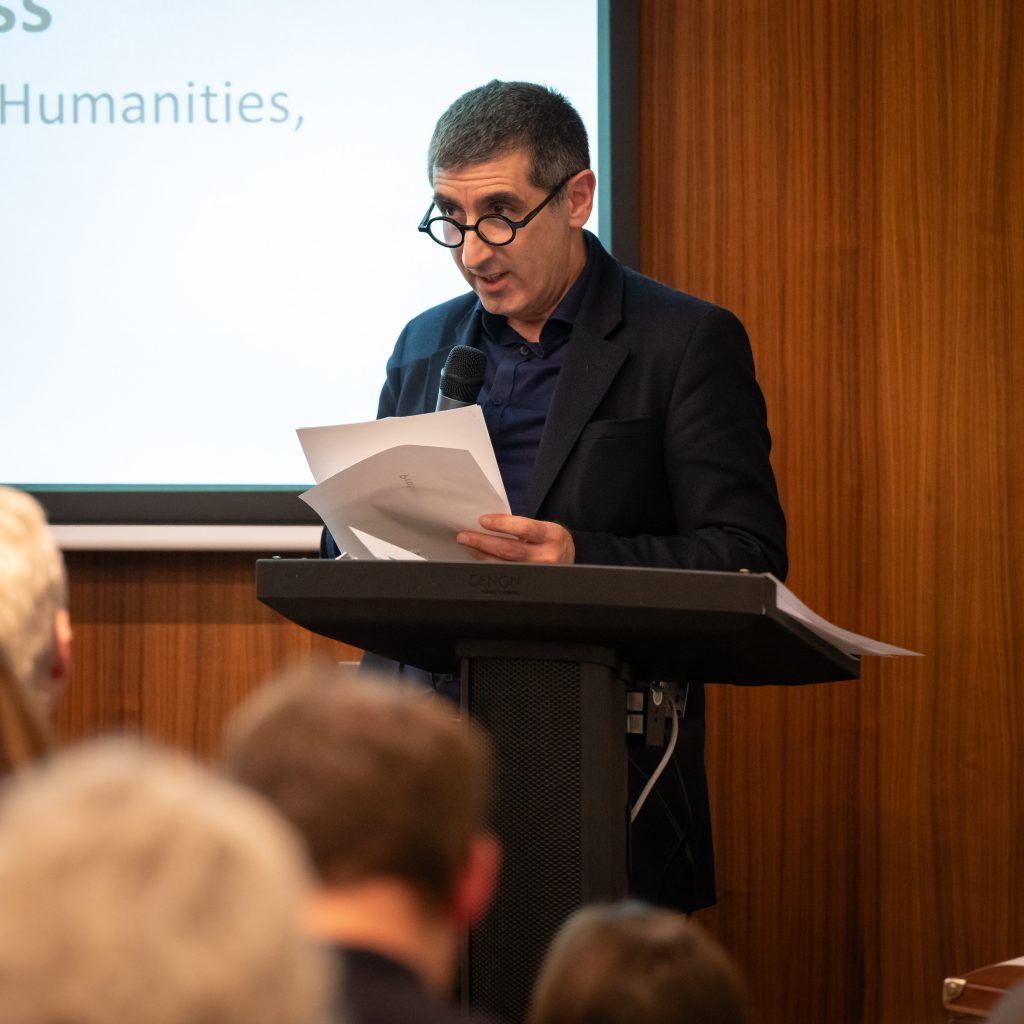
Professor Cornel Sandvoss, Executive Dean of the Faculty of Media, Arts and Humanities, emphasised the importance of humanities and social science in research on the Holocaust.
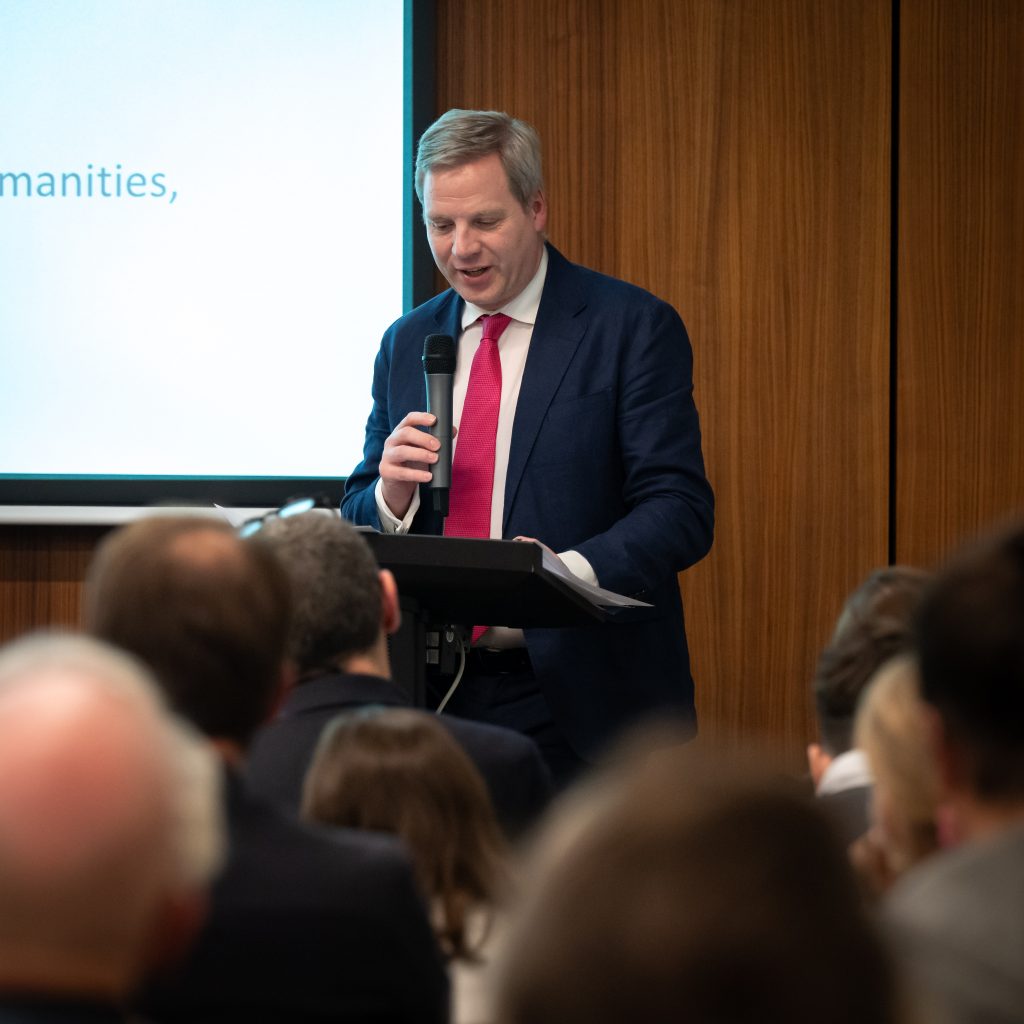
In closing the talks, Lord Khan of Burnley, Parliamentary Under-Secretary of State, Minister of Housing, Communities and Local Government highlighted our work in the context of digital obsolescence.
“We’ve all had the experience of seeing an innovative project that works for a couple of years, until technology moves on and we lose access. In light of this, the development of the Landecker Digital Memory Lab is timely. Mapping the Holocaust digital landscape is an important first step,” he said.
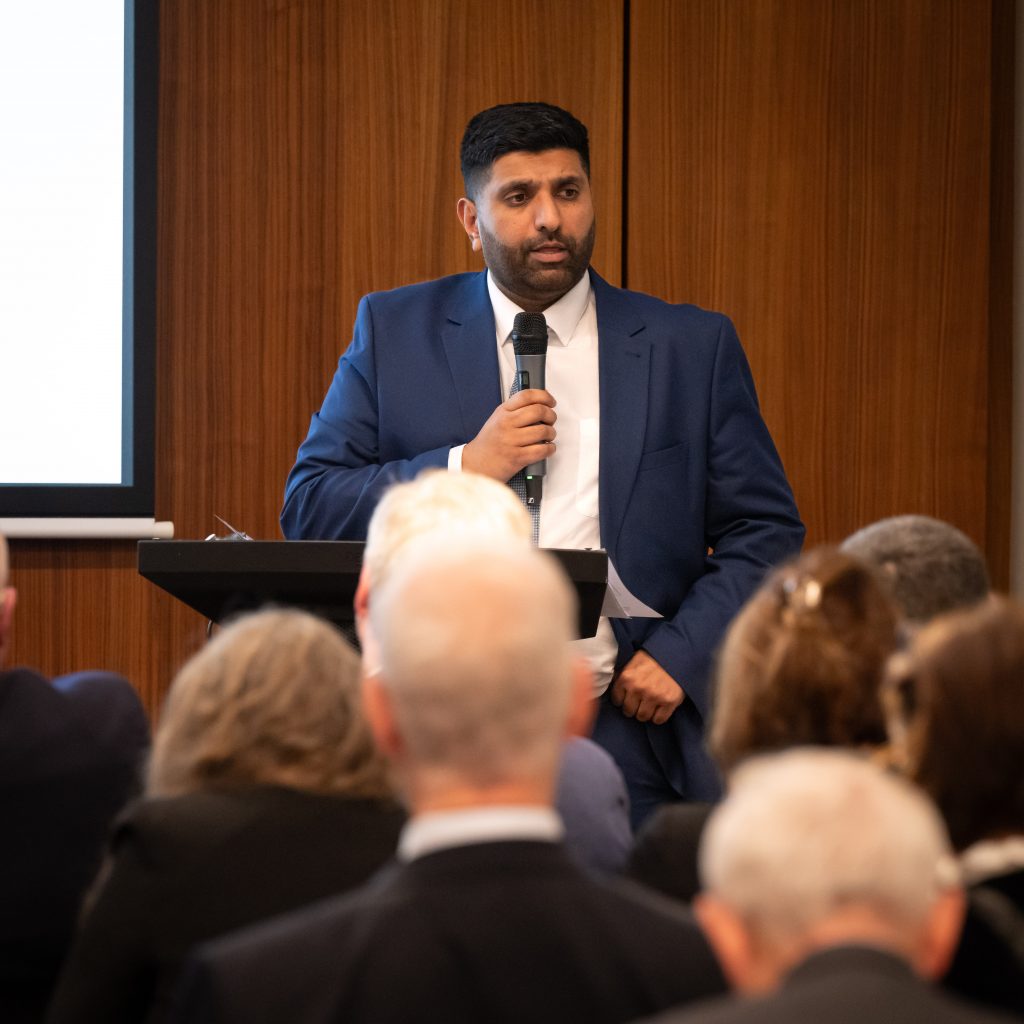
We are really grateful to our guests and excellent speakers, and to the Imperial War Museums for hosting this event, especially colleagues in the learning team, with whom we have long had a wonderful professional relationship.
If you missed the launch, watch it here:
Want to Know More?
Read part 1 and part 2 of our ‘Building a Lab’ series to find out more about how we got our project up and running.